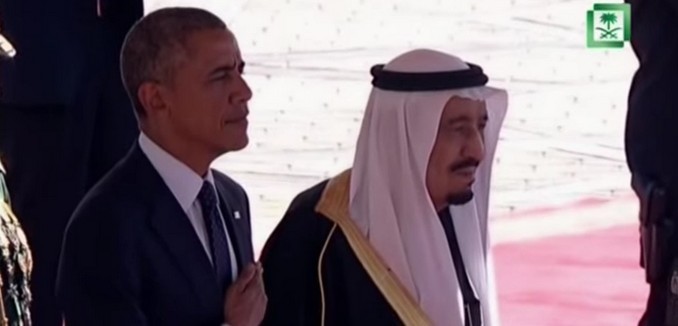The Obama administration is “siding with Iran” while operating “over the heads of the Saudis” in its deliberations over the future of Yemen, Tony Badran, a research fellow for the Foundation of Defense of Democracies, wrote Friday in an analysis published on the Lebanese website NOW News.
Badran noted that a number of administration officials, while publicly claiming to support the Saudis, have actually “tilted much more toward Iran.” Last week, for example, one administration official said that Saudi Arabia should stick to defending its border.
“At some point, an air campaign has diminishing and marginal returns,” another official told columnist David Ignatius the following day. “Let’s not lose sight of the fact that the Yemen conflict will have to be solved politically.” At the same time, other administration officials played up Iran’s supposedly positive intentions, claiming that Tehran had in fact discouraged the Houthis from taking over Sanaa.
Once the Saudis did announce an end to Operation Decisive Storm, the administration quickly took credit, leaking that it was US pressure that made Riyadh back down. “The Saudis,” a State Department spokesperson said on Wednesday, “understand that the path forward here needs to be dialogue.”
Obama was signaling a kind of indirect partnership with Tehran, which the Iranians were quick to exploit. On Tuesday, hours before the Saudis even made their announcement, Iran’s Deputy Foreign Minister Hossein Amir-Abdollahian preemptively declared “that in the coming hours, after many efforts, we will see a halt to military attacks in Yemen.” With this seemingly innocuous statement, the Iranians showed the world that they are negotiating with the Americans over the heads of the Saudis.
Badran noted that Abdollahian had previously made similar boasts about the administration telling Israel to limit its operations against the terrorist organization Hezbollah, an Iranian proxy group.
Badran concluded the analysis by noting that the White House’s desire for “equilibrium” in the region “is a fantasy. Or maybe it is something much worse. Perhaps it is just the least objectionable way of saying that Obama is now siding with Iran.”
Saudi Arabia has repeatedly rejected the Obama administration’s view that Iran could be part of a political solution in Yemen. The Saudi ambassador to the United States, Adel al-Jubeir, reiterated that point last week, saying, “Iran is part of the problem in Yemen, not part of the solution.”
According to a report last month by Eli Lake of Bloomberg News, ambassadors for the Gulf states predicted that the money freed up for Iran in the course of the negotiations over its nuclear program “would be used to destabilize the region.”
[Photo: Associated Press / YouTube ]




